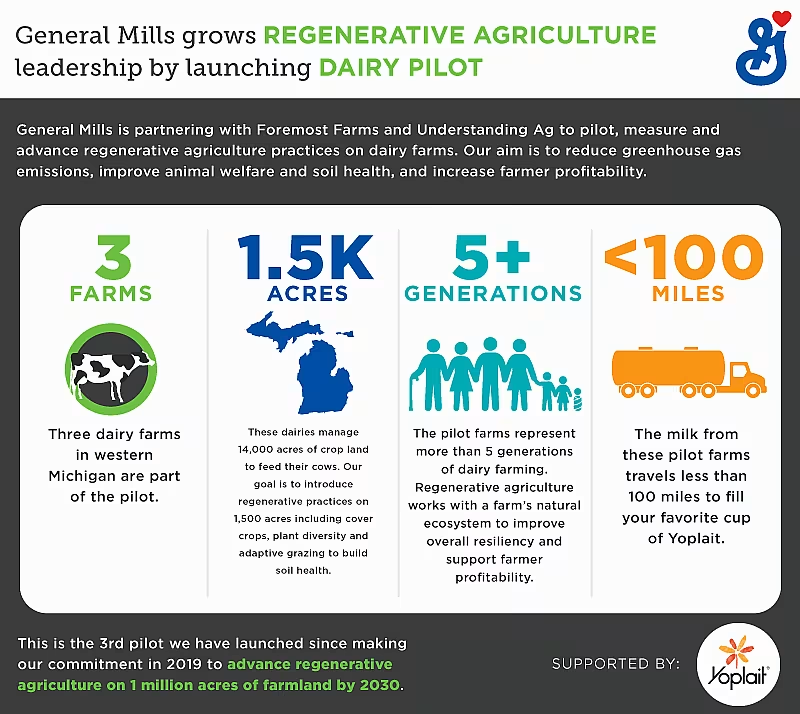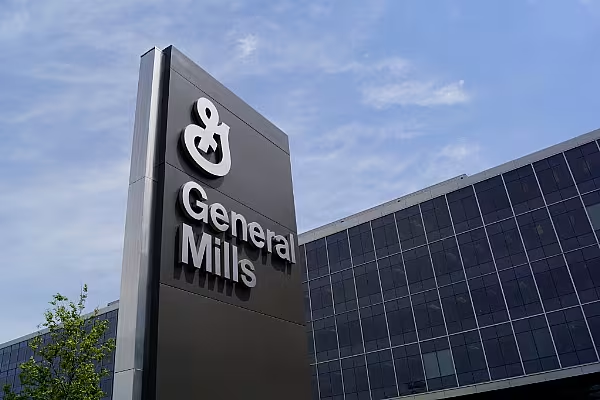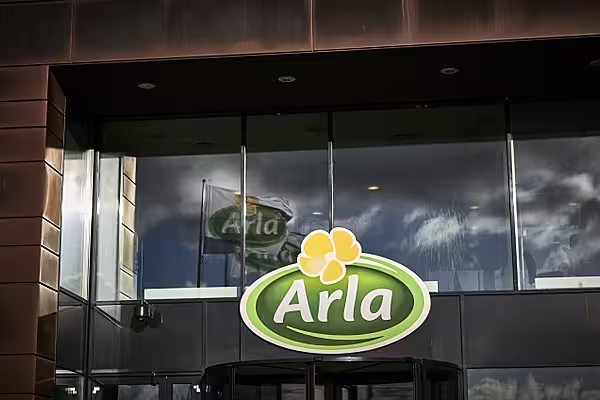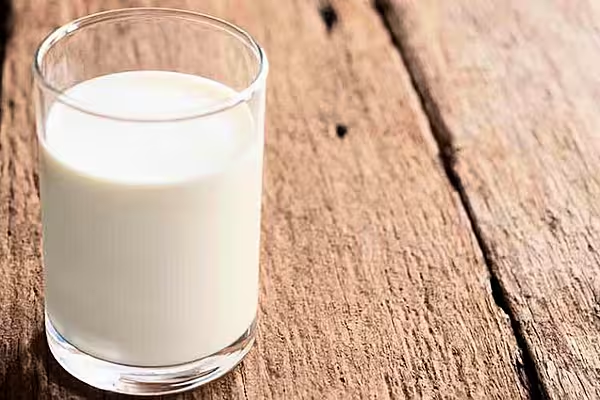General Mills has announced that it has launched a three-year regenerative dairy pilot project in western Michigan supported by Yoplait.
The company has partnered with consultants Understanding Ag and dairy cooperative Foremost Farms for the project, which will see the implementation of regenerative practices in the three participating dairy farms.
Mary Jane Melendez, chief sustainability and social impact officer at General Mills, commented, “For regenerative agriculture to be successful, it must first be economically viable for farmers as a lever to help build operational and financial resilience.
“With this pilot, General Mills is committed to ensuring that the transition to regenerative practices will be beneficial to our dairy partners and enhance the overall health of their farms."
The Project
The three farms participating in the pilot were chosen for their proximity to General Mills’ dairy manufacturing facility in Reed City, Michigan. The facility produces a variety of Yoplait products.
The farms, covering an area of more than 14,000 acres, were chosen for their proximity to General Mills’ dairy manufacturing facility in Reed City, Michigan, which produces several Yoplait products.
As part of the project, consultants from Understanding Ag will meet each dairy farmer and help them in developing and implementing customised regenerative management plans for a portion of their operations.
Throughout the pilot, the partners will monitor data and measure the impact on soil, biodiversity, water, animal well-being, and farm profitability, the company added.

'A Great Example'
Doug Martin, president of the General Mills US yoghurt business, added, "We believe regenerative agriculture builds and strengthens farmer resilience so they can better withstand pressures, be it societal, financial, or environmental.
“This pilot with Yoplait is a great example of the role our brands can play in unleashing the scale of our supply chain – supporting farmers, promoting animal welfare, and improving the health of the planet, all while delivering a great-tasting product.”
This project is the third regenerative agriculture pilot launched by General Mills.
It is also the first for the company's dairy ingredients supply since 2019 when the company pledged to expand regenerative agriculture practices to 1 million acres of farmland by 2030.
Regenerative Agriculture
Regenerative agriculture seeks to strengthen the ecosystem by pulling carbon from the air and storing it in the soil, making the land more resilient to extreme weather events.
It also helps in increasing water infiltration, improving nutrient cycling, and reduce soil erosion which has been shown to positively impact the quality of nearby lakes, rivers, and streams.
Regenerative practices on dairy farms can look slightly different than row crop farms, specifically incorporating adaptive grazing on pastures and cropland, the company said.
Dr. Allen Williams, sixth-generation farmer and rancher and founding partner at Understanding Ag, explained, “The Michigan pilot is designed to substantially build soil health, mitigate harmful runoff and erosion, restore natural ecosystem function, and revitalise farm and rural economies.
“These practices will lead to a cleaner environment, healthy climate, and improved quality of life for the farmers themselves."
© 2020 European Supermarket Magazine – your source for the latest retail news. Article by Dayeeta Das. Click subscribe to sign up to ESM: The European Supermarket Magazine.














